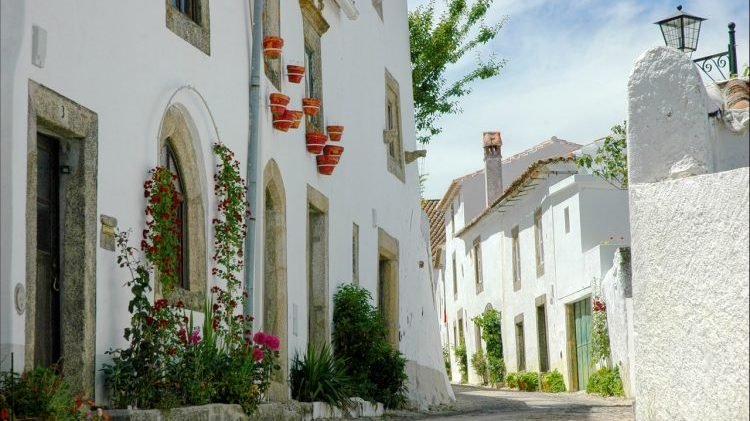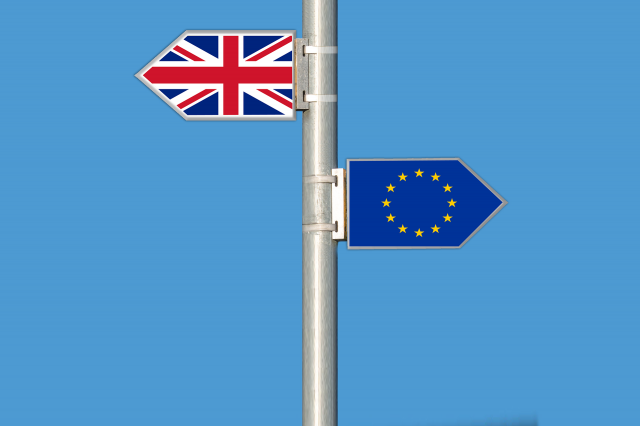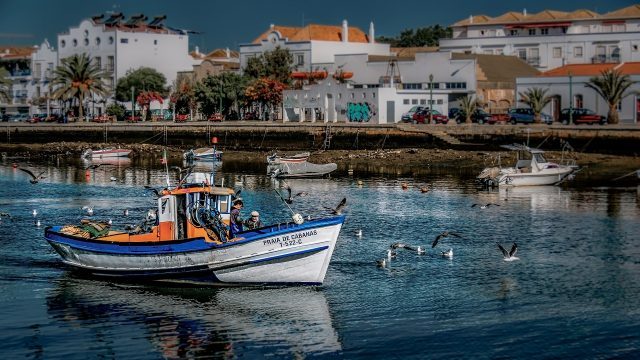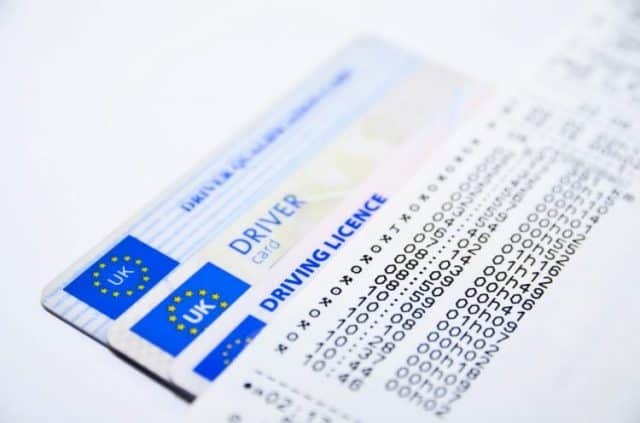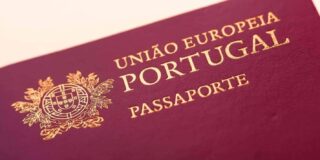So you’re thinking of moving to Portugal from the UK but Brexit is complicating your plans? We’ve sorted out the current state of play and what you can do to make sure that you get to Portugal before “B-Day.”
Brits in Portugal
According to the Portuguese government, there are currently 26,445 British citizens living in Portugal, and since the EU referendum, the number of Brits living here has increased by 36.7%. Most live in the areas of Lisbon and the Algarve. Unlike other member states, earlier this year Portugal passed legislation allowing current British citizens to stay in the country after Brexit — but what do you have to do if you’re still in the UK? Read on.
What is going on with Brexit?
When Boris Johnson became Prime Minister, he was adamant that the United Kingdom would leave the EU on 31st October 2019. This was a “do or die” date, whether there was a deal in place or not. However, in September MPs passed legislation preventing a no-deal Brexit. The so-called Benn Act stipulated that if the EU and the United Kingdom hadn’t managed to agree on a withdrawal deal by 31st October, the Prime Minister would have to ask the EU for an extension — something he kept saying he wouldn’t do even though he had to do it by law. Miraculously, Britain negotiated a deal just before the EU summit in October, so all that had to be done was for the Withdrawal Bill to be ratified by the British Parliament. Moving to Portugal from the UK as a pensioner? Find out if it’s worth spending your retirement in Portugal.
So, now that we have a deal, why didn’t we leave the EU on 31st October?
For any bill to be ratified, it has to follow the relevant parliamentary procedures. That means it has to pass first reading, second reading, committee stage, report stage, and third reading before it can go to the House of Lords. On Tuesday, 22nd October, the bill passed second reading — but 20 minutes later the programme motion presented by the ministers was rejected by the MPs. The programme motion was a timetable which would give MPs only three days to debate the Withdrawal Bill. They thought it was not enough time to scrutinise a piece of legislation that would determine Britain’s future for at least a generation.
And what happens now?
The Prime Minister sent a letter to ask the EU for an extension, although he claims that it wasn’t from him because he hadn’t signed it. The bill, according to the former Commons Speaker John Bercow, is now “in limbo.” It has not been included in the future Commons agenda and its fate is uncertain. The Prime Minister wants to force a general election, which the MPs might not allow him to do.
What does it all mean for those who are thinking of moving to Portugal from the UK?
British citizens currently living in Portugal can consider themselves lucky. While other member states are waiting to see what happens to their citizens who live in the UK (there isn’t much trust in the so-called “settled status” for EU citizens), Portugal has passed legislation which says that British citizens legally residing in Portugal before Brexit day — the end of the transition period or no-deal (whichever applies) — will be allowed to stay in Portugal. You can read more about it here. If you don’t register as a resident before Brexit but you can prove that you had lived in Portugal before the UK left the EU, you can still legalise your residency. We know now that the EU has granted a flexible extension. Obviously, that means that the UK did not leave the EU on 31st October as previously thought. The flexible nature of the extension means that the UK can leave the EU on the first day of the month following the ratification of the Withdrawal Bill or on 1st February 2020, whichever is the earliest. In practice, that means that if the United Kingdom leaves without a deal on 1st February 2020, you have until then to legalise your residency. If it leaves with a deal, you have until the end of the transition period to register (currently the end of December 2020). Find out here what you should do during the immigration process.
How can I legalise my stay in Portugal?
In order to register as an EU resident, you have to obtain the Certificado de Registo de Cidadão da União Europeia — the EU citizen’s certificate. You can stay for up to 90 days in Portugal without registering. It’s important to point out that you don’t have to wait 90 days to register. You can do it straight away, once you have all the necessary documentation. Do you have children? Find out what it’s like to raise children in Portugal.
Where do I register?
You have to go to the Câmara Municipal of your concelho (the area live in). Below are the most popular ones:
- Câmara Municipal de Lisboa
- Câmara Municipal de Oeiras
- Câmara Municipal de Cascais
- Câmara Municipal de Sintra
- Câmara Municipal de Faro
- Câmara Municipal do Porto
What documents do I need?
Once you have moved a few times, you will see that some câmaras are fussy and want a lot of paperwork and some are more relaxed. As a rule of thumb, you need the following documents:
- Passport
- Proof of address (tenancy agreement or utility bill)
- NIF number (you can easily apply through a third-party supplier like GETNIFPORTUGAL
- Proof of income
- Completed registration form (you can complete it at the counter)
- €15 (you can pay by cash or card)
This is the maximum that you require, however, each câmara differs in how many of those documents they will ask for. For example, I found that one câmara asked for a utility bill or a tenancy agreement and another was fine with a UK bank statement sent to a Portuguese address. One didn’t ask for the NIF number, another did — and when I was updating my address with the same câmara, they didn’t even ask for proof of address. Some câmaras won’t ask you for proof of income and you will only have to declare on the registration form that you have enough money. You should get a residency for the first 5 years. If they give you six or 12 months, politely ask why. Sometimes six or 12 months will be given if your income cannot be adequately proven. After Brexit, make sure that you travel with your certificado if you ever go abroad. If you don’t make it before Brexit, you will become a third-country national, so you will need a visa. Check out what kind of visa you might need in order to move to Portugal.
Exchanging your driving licence in Portugal
Once you have registered as a resident, you have 60 days to exchange your UK Driving Licence for a Portuguese one. You can do it at any IMT office. Allow a lot of time, as the queues can be big. On handing in your UK driving licence, you will be given a piece of paper called a ‘guia’. This guia can be driven on in the UK with a 1968 International Driving Permit obtained from the Automóvel Club de Portugal. The process can take a lot of time, so be patient. Once you have obtained your Portuguese driving licence, check to make sure your licence includes all your categories, as some people have had categories missing. Check out Driving Licence: Tips and Advice and the Ultimate Guide to Driving in Portugal. If you want to bring your car with you, read this article.
Healthcare in Portugal
Up until now a lot of people, especially pensioners, have been able to use the European Health Insurance Card to access healthcare in the EU. However, EHIC is an EU initiative, so it may not be valid after Brexit. As an EU citizen (still), you have the same right to access national health service as Portuguese citizens. Unlike in most countries where people have to pay social security in order to access healthcare, Portugal offers its citizens access to healthcare on the basis of their citizenship. What does that mean for EU citizens? Well, since you have to have the same right to access healthcare, you can access it on the basis of your residency (your certificado), as long as you live in Portugal legally. A lot of GP surgeries (centros de saúde) will tell you that you need a social security number or an EHIC, and will try to send you away, but don’t worry — you should be able to get registered anyway. Please note, that EHIC is recommended only for those who are in Portugal temporarily. To learn more about healthcare in Portugal, click here.
Everything could change suddenly. How do I keep up to date if I’m thinking of moving to Portugal from the UK?
As British citizens, we are living in uncertain times, especially those of us who want to live in Europe. It is important to keep up to date with what is going on as it could change at short notice. The official websites should be your main source of information, so check the Gov.uk’s Living in Portugal section regularly. Good luck with your move! If you’re thinking of moving to Portugal from the UK but don’t know which Portuguese city to move to, read our guide.To get weekly information about Portugal, subscribe to our newsletter. It’s completely free!


